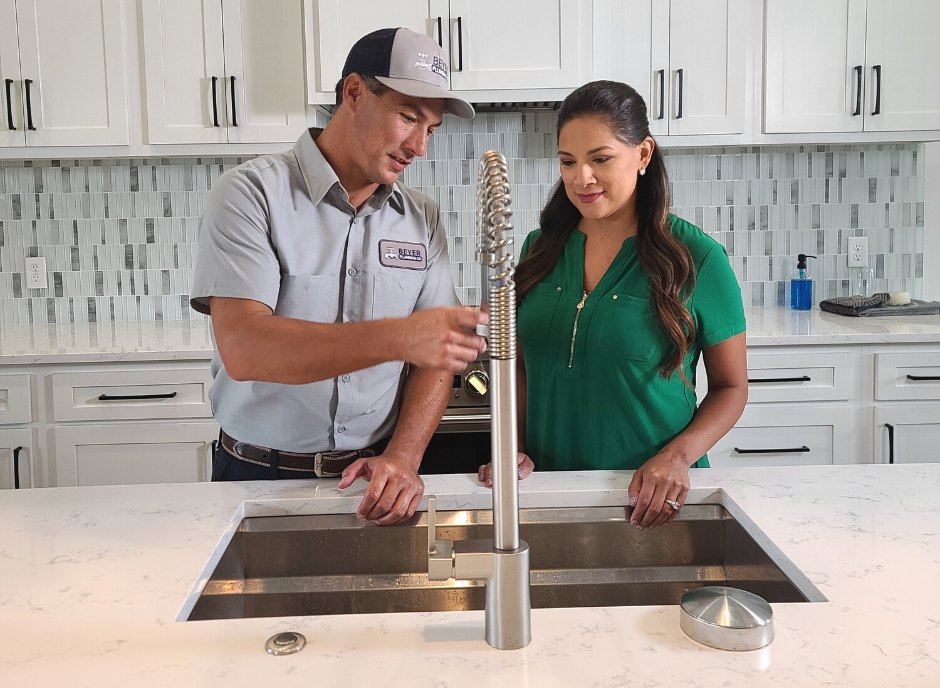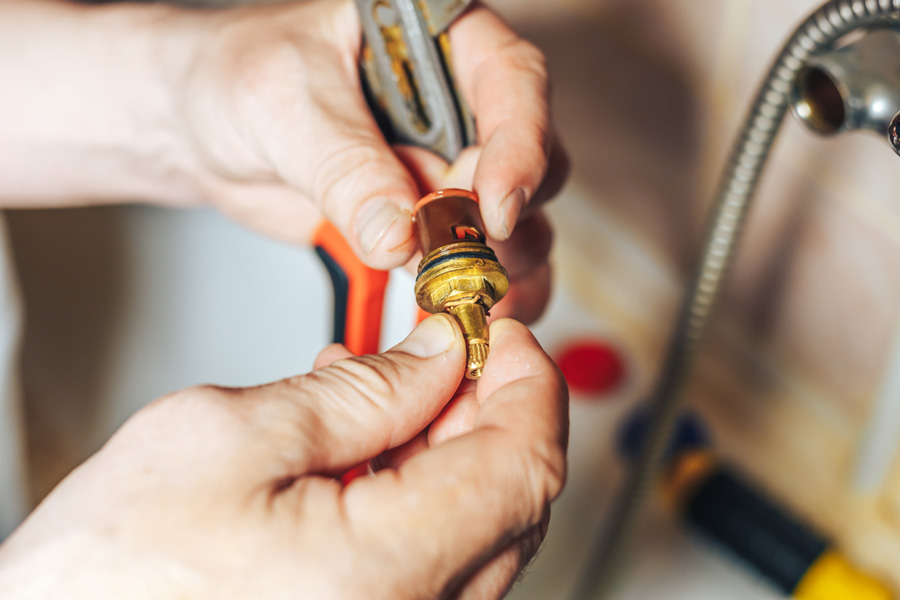Discovering the Importance of Fixing a Leaking Faucet
Discovering the Importance of Fixing a Leaking Faucet
Blog Article
Any individual will have his or her own thinking involving Should I Repair or Replace a Leaky Faucet?.

Leaking taps might feel like a small aggravation, yet their effect exceeds simply the annoyance of the noise. From wasting water to incurring unneeded economic costs and health and wellness risks, ignoring a dripping faucet can bring about various consequences. In this article, we'll delve into why it's important to resolve this common family problem immediately and successfully.
Wastefulness of Water
Ecological Effect
Leaking taps contribute substantially to water wastage. According to the Epa (EPA), a solitary faucet leaking at one drip per secondly can squander more than 3,000 gallons of water each year. This not only strains water sources yet also influences environments and wild animals depending on them.
Financial Costs
Enhanced Water Costs
Past the environmental impact, leaking taps can blow up water costs considerably. The built up wastefulness in time translates right into greater energy expenses, which can have been avoided with prompt repair services.
Prospective Property Damage
In addition, prolonged leaking can bring about damage to fixtures and surface areas surrounding the tap. Water accumulation can create staining, corrosion, and also structural concerns if left unattended, causing added repair service prices.
Health and wellness Issues
Mold and Mold Growth
The consistent visibility of dampness from a trickling tap produces an ideal setting for mold and mildew development. These fungi not only compromise interior air high quality however likewise position wellness threats, especially for individuals with respiratory system conditions or allergies.
Waterborne Illness
Stationary water in leaking faucets can end up being a breeding place for germs and other pathogens, enhancing the risk of waterborne illness. Impurities such as Legionella germs thrive in stationary water, possibly leading to serious illnesses when ingested or breathed in.
Do it yourself vs. Specialist Fixing
Pros and Cons of DIY Repair Work
While some might attempt to fix a dripping faucet themselves, DIY repair work include their own set of obstacles. Without appropriate expertise and tools, DIY efforts can intensify the issue or cause insufficient repair work, extending the issue.
Advantages of Working With an Expert Plumber
Working with a professional plumber ensures that the underlying source of the trickling tap is addressed successfully. Plumbers possess the know-how and equipment to detect and repair tap concerns effectively, saving time and decreasing the threat of further damage.
Step-by-Step Guide to Taking Care Of a Dripping Tap
Devices Needed
Before trying to take care of a leaking faucet, gather the required devices, consisting of an adjustable wrench, screwdrivers, replacement parts (such as washing machines or cartridges), and plumber's tape.
Usual Tap Issues and Their Solutions
Recognize the type of tap and the details concern causing the drip. Typical troubles include worn-out washers, corroded valve seats, or faulty O-rings. Refer to maker instructions or online tutorials for step-by-step advice on repair services.
Preventive Measures
Regular Maintenance Tips
To prevent trickling faucets, perform regular maintenance such as cleaning up aerators, evaluating for leakages, and replacing worn-out parts promptly. Furthermore, think about setting up water-saving devices or upgrading to much more efficient fixtures.
Significance of Prompt Fixes
Dealing with trickling taps as quickly as they're observed prevents further water wastage and potential damage, inevitably conserving both water and money over time.
Effect On Building Worth
Assumption of Well-Maintained Residential Or Commercial Property
Keeping a home in good condition, consisting of attending to upkeep concerns like trickling taps, enhances its perceived worth and desirability amongst potential customers or renters.
Impact on Resale Worth
Features with well-maintained plumbing fixtures, consisting of taps, command higher resale values in the real estate market. Resolving trickling taps can contribute to a favorable perception during property evaluations and arrangements.
Environmental Responsibility
Private Contribution to Preservation
Taking obligation for fixing leaking taps lines up with wider efforts towards water conservation and environmental sustainability. Every person's actions jointly make a substantial effect on preserving priceless sources.
Sustainable Living Practices
By focusing on punctual repairs and embracing water-saving habits, people add to lasting living techniques that benefit both existing and future generations.
Verdict
Addressing a dripping tap goes beyond plain ease; it's a crucial action towards preserving water, decreasing monetary prices, and safeguarding wellness and residential property. Whether via do it yourself repair work or specialist help, taking action to deal with trickling taps is a small yet impactful way to promote accountable stewardship of sources and contribute to a healthier, more sustainable future.
How to Fix a Leaky Faucet: Step-by-Step Repair Guide
A leaky faucet may seem like a simple annoyance, but if it's not fixed promptly, that leak could cost hundreds to potentially thousands. From water damage to mold, mildew, and high water bills, even a tiny leak can be catastrophic if left unattended. Damage like this can even affect the overall value of your home, so it's important to take the right approach for leaky faucet repair. You may need the help of a plumber in some cases, but we've got a few tips you can try on how to fix a leaky faucet before calling the pros.
Four Faucet Types
When you're learning how to fix a leaky faucet, the first step is knowing what kind of faucet you're working with! There are four common types.
Cartridge Faucets
Cartridge faucets come in one- or two-handled varieties. In one-handled cartridge faucets, hot and cold water combines in a single cartridge. In the two-handled versions, hot and cold water are controlled separately and mixed in the faucet.
Ball Faucets
Ball faucets have a single lever you push up and down to adjust the pressure and rotate to change the temperature. A slotted metal ball controls the amount of water allowed into the spout.
Compression Washer Faucets
They're the oldest type of faucet, but they're still used in many homes — especially older ones. Compression faucets have two separate handles that, when turned, raise or lower the washer that seals a water valve. This valve stops water from flowing through the faucet when it is turned off.
Disc Faucets
Disc faucets rarely need to be repaired due to their maintenance-free design. The water flow is controlled by two discs — the upper one raises and lowers against a fixed lower disc, creating a watertight seal. If your disc faucet starts leaking, you may need to replace the seals or clean residue buildup from the inlets.
Fixing a Leaky Faucet
Step 1: Turn Off the Water
Whether you're learning how to fix a leaky bathtub faucet or how to fix a leaky kitchen faucet, always turn off the water supply to your working area when you're fixing a leak. The last thing you want is a flood added to your list of things to fix.
Look for the shutoff valves below your sink or around the tub and turn them clockwise to stop the water flow. If your faucet doesn't have shutoff valves, you may need to turn off the water for the whole house. Check to make sure it's off by turning the faucet on. If nothing comes out, you're ready to start the repair.
Step 2: Take Apart the Faucet
How you disassemble your faucet depends on the type of fixture you have. You can use a flathead screwdriver to remove the caps on top of the handle or handles for cartridge and compression faucets. Inside, you should see handle screws. Unscrew these with a screwdriver to remove the handle.
Disc- and ball-style faucets will typically have an inlet screw near the handle, and removing that will reveal the interior of the faucet.
Detach the Valve Stem
For cartridge- and compression-style faucets, you'll see the inner valve stem or cartridge once you remove the faucet handles. If you have a compression faucet, unscrew the brass valve stem. If you have a cartridge faucet, pull out the cartridge. If your cartridge has been in place for a while, it may require some tools or extra force to remove it due to mineral deposits.
Examine and Replace Parts
Once you've removed the parts, check them out to confirm what needs to be replaced. You may see corroded rubber washers, O-rings, stems, or cartridges. On a ball-style faucet, check the seats and springs for damage.
If you need to repair a leaky disc faucet, check the inlet and seals on the lower disc.
Once you determine what parts must be replaced, visit your local hardware store. Bring the damaged parts with you to ensure you can purchase the correct components to replace them.
Clean Valves and Faucet Cavity
If you've removed a stem or cartridge, you may notice mineral buildup in the faucet's threads. Use white vinegar to clean the valve seat by soaking it for a few minutes, then scrub it away with a soft toothbrush and rinse with warm water. You can also clean the interior of the faucet in the same way.
Reassemble the Faucet
Once your faucet is cleaned and the required parts have been replaced, it's time to reassemble it. Put the pieces back together and slowly turn the water supply back on. Doing this slowly is crucial because too much initial water pressure can damage the new hardware you've just installed.
https://homewarranty.firstam.com/blog/how-to-fix-leaky-faucet

I was made aware of that write-up on 4 Common Reasons for a Leaky Faucet from a friend on a different site. In case you liked our article kindly be sure to pass it around. Thanks so much for taking the time to read it.
Report this page